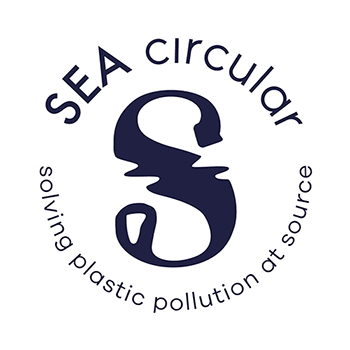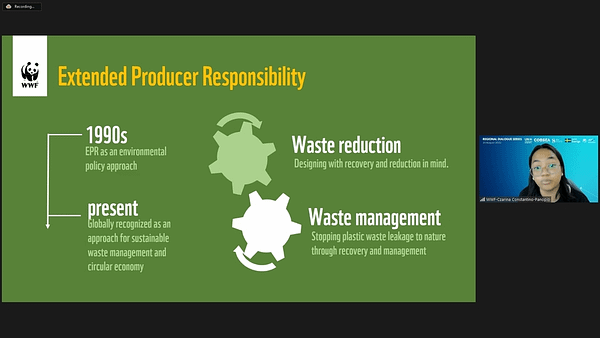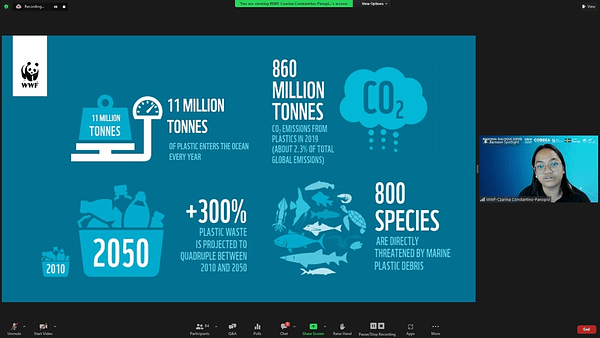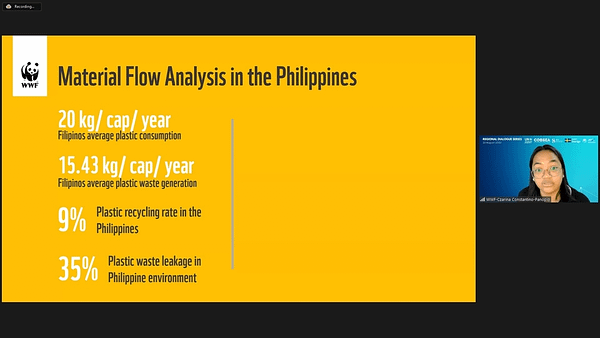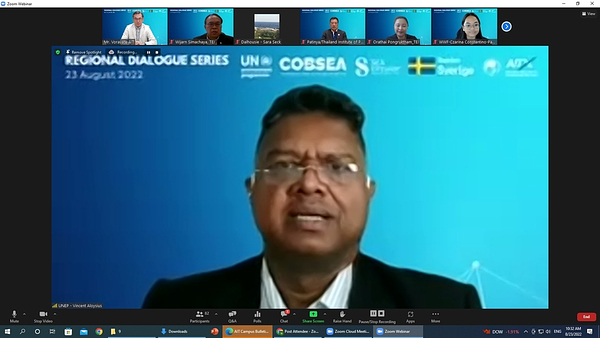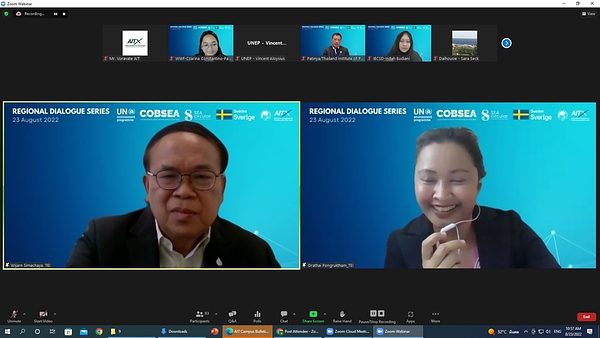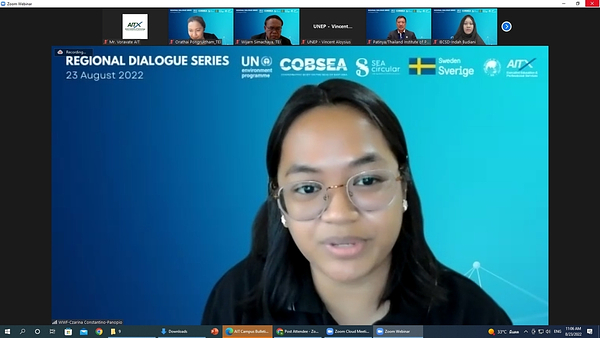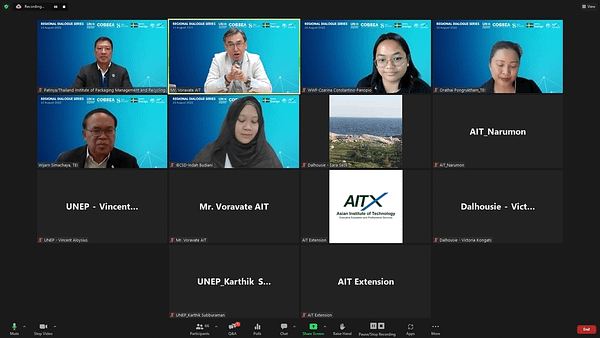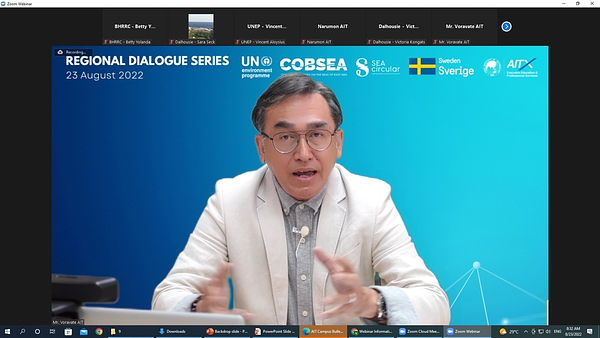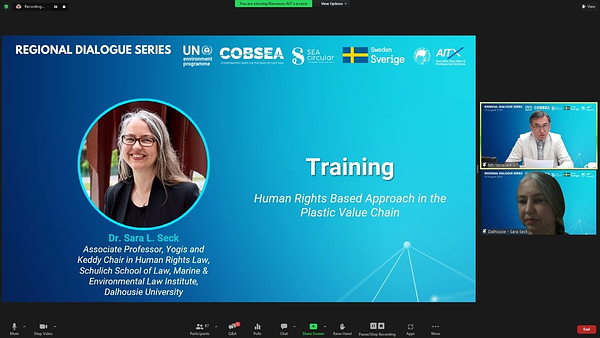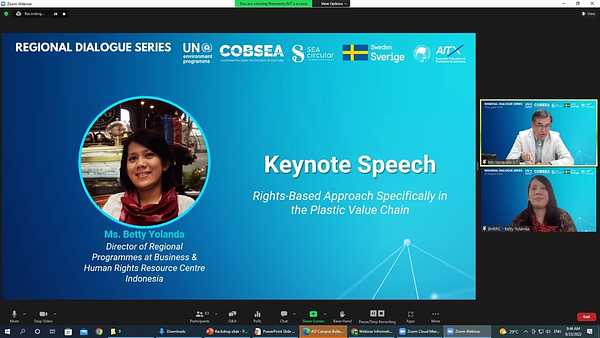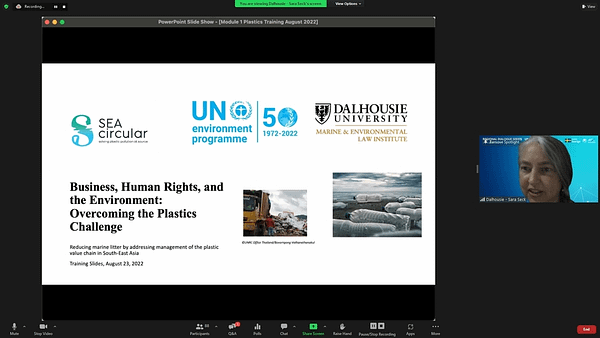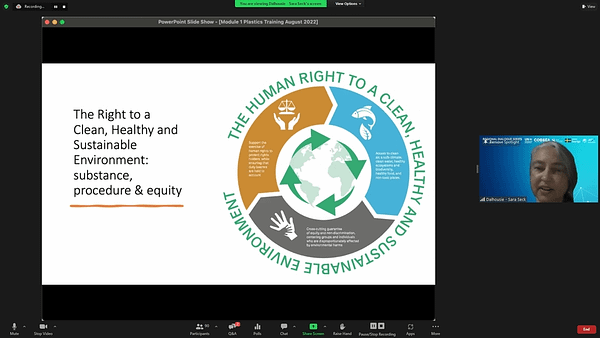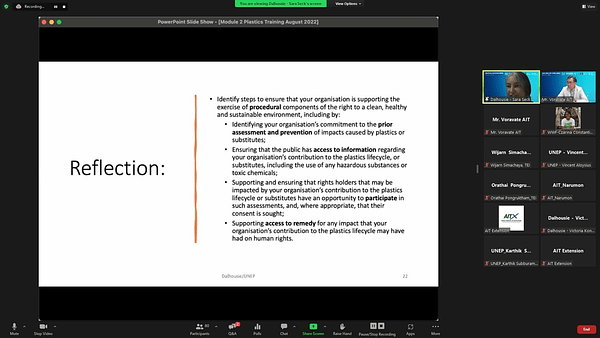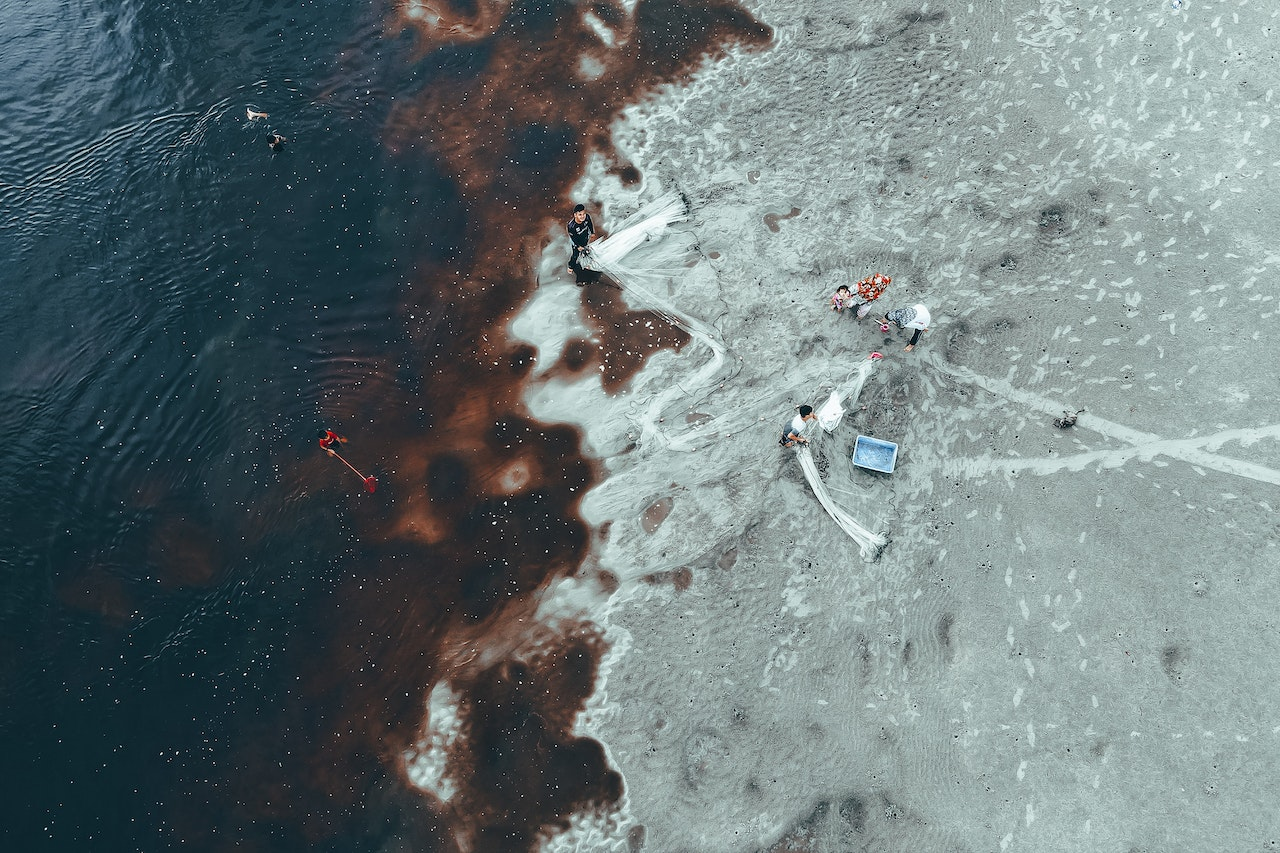
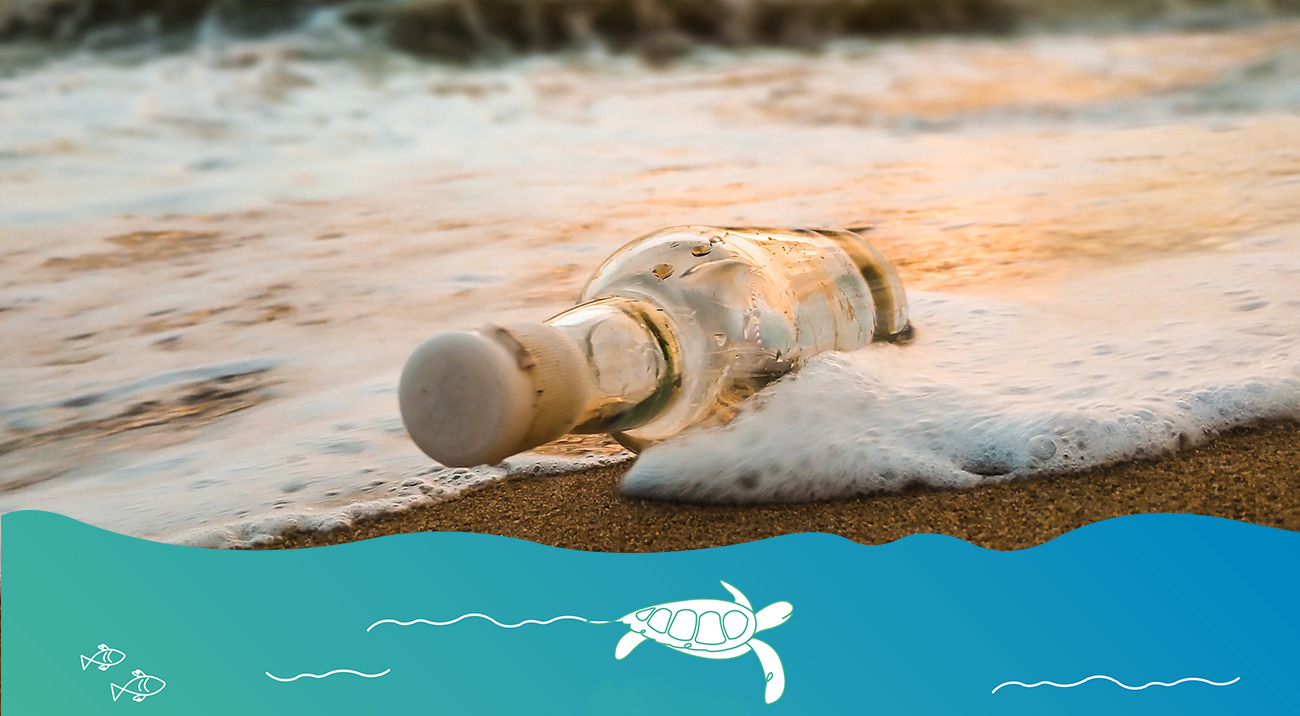

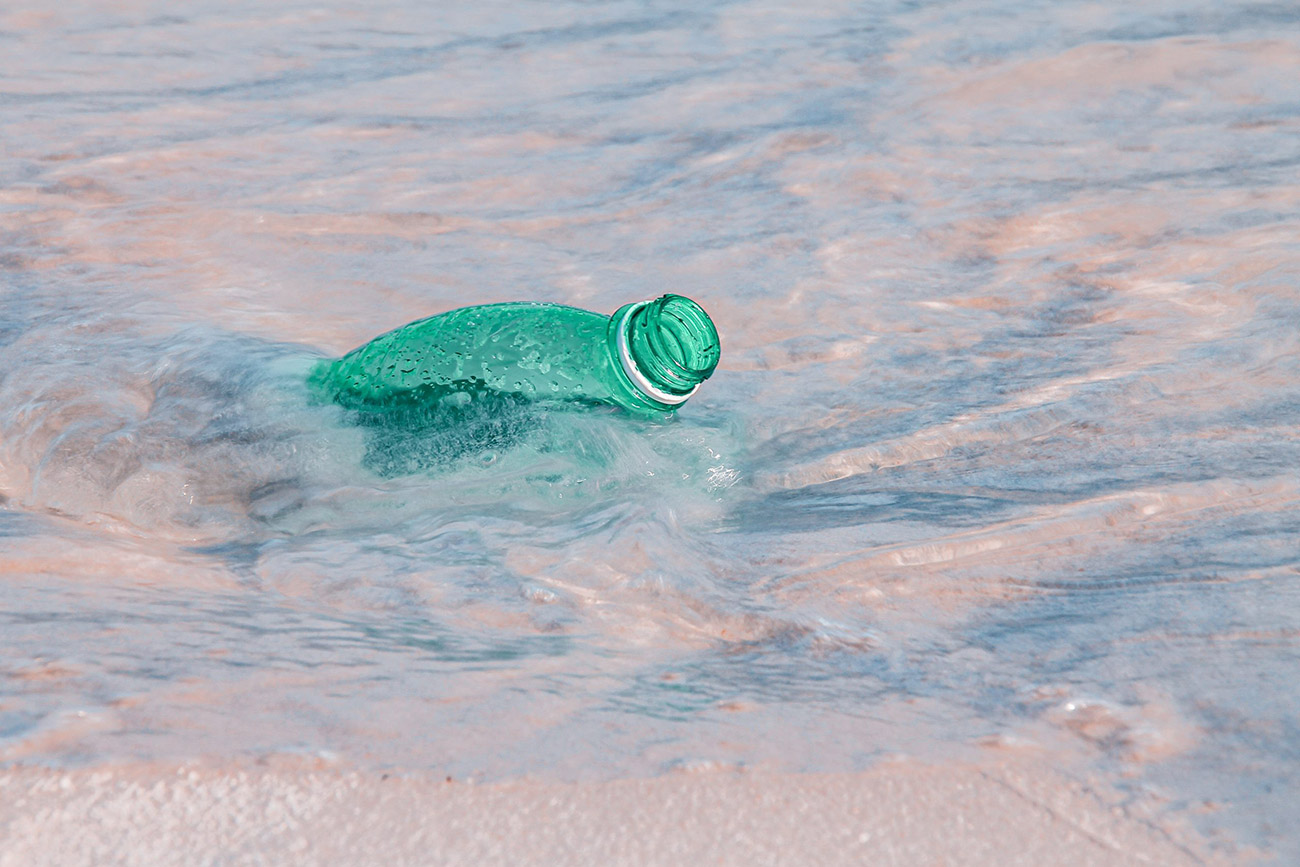

Improving awareness about the role of women in the informal sector in the urban centers in the prevention of marine pollution from plastics
Resource Deck: SEA Circular - Solving Plastic Pollution at Source in South-East Asia
Charting a Sustainable Course: Tackling Plastic Pollution in Asia with a Human Rights-Based Approach
Regional dialogue on ‘Perceptions on plastic waste: A dialogue on the findings of a regional study and the role of businesses in accelerating circularity’
SEA Circular Newsletter – December 2022
SEA CIRCULAR
Solving Plastic Pollution At Source
Plastic waste is choking our seas and threatening ecosystems and livelihoods in South-East Asia. Striving for cleaner seas, less plastic wasted and a more circular economy requires fundamental change throughout the plastic value chain.
SEA circular is an initiative of UN Environment Programme and the Coordinating Body on the Seas of East Asia (COBSEA) to inspire market-based solutions and encourage enabling policies to prevent marine plastic pollution.
Events
Image gallery
25th – 27th October 2023
This workshop is a significant step towards comprehending the vital role women assume in combatting marine pollution, particularly from plastic waste. The event aligns with Vietnam’s commitments to marine environmental protection and the promotion of gender equality in policy development....
9 October 2023
Monitoring and assessment are crucial for understanding marine litter's status, trends, and impacts, enabling the development of effective policies. COBSEA's Regional Action Plan on Marine Litter (RAP MALI) emphasizes the importance of robust and harmonized plastic pollution...
UN Environment Programme (UNEP), in close collaboration with AIT Extension, Asian Institute of Technology (AIT), will organize the first regional dialogue series which compose of two sub-activities, namely a Training...
SEA CIRCULAR
COUNTRIES
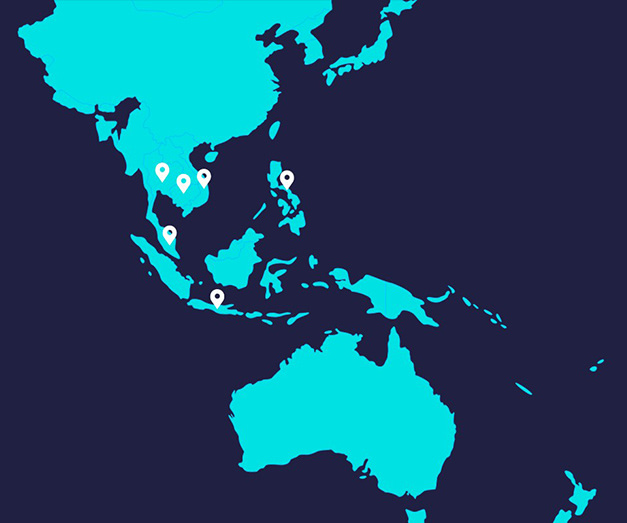
RECENT HIGHLIGHTS
17 October 2023
A pivotal panel discussion titled ‘Plastic Pollution in Asia: Business Models Integrating a Rights-Based Approach’ occurred at the UN Conference Centre in Bangkok, Thailand. This discussion...
11 January 2023
Over 150 participants representing government agencies, businesses, start-ups and entrepreneur communities from 20+ countries joined the regional dialogue on ‘Perceptions on plastic waste...
12 October 2022
